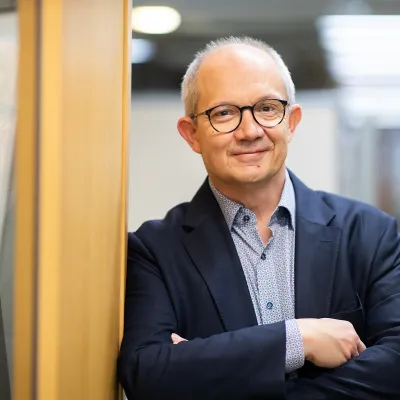VTT and partners have successfully demonstrated novel catalytic path to upgrade lignocellulosic bio-oils to fuels and chemicals within CaSH (Catalytic Slurry Hydrotreatment) research project.
Lignocellulosic biomass is an abundant sustainable feedstock which can be turned into valuable chemicals and fuels, thus replacing traditional fossil-based feedstocks of the chemical industry. Several technical challenges hinder broad adoption of lignocellulosic feedstock, in particular, a need for an efficient catalytic upgrading process. Development of an innovative, robust and scalable upgrading process for the complex lignocellulosic bio-oils was the main target of the two-year research project CaSH (Catalytic Slurry Hydrotreatment). The results of the project were recently presented at the final project seminar in Espoo. The joint CaSH research project was coordinated by VTT and funded by Business Finland and several industrial companies as a part of the Neste Veturi ecosystem.
Three research partners of CaSH project, Åbo Akademi University, University of Oulu and VTT have achieved substantial progress in the field of biomass upgrading over the course of the project. Several novel catalyst families for the catalytic upgrading of lignocellulosic bio-oils have been developed and tested with model compounds and real bio-oil feeds. A process concept for the catalytic upgrading of bio-oil has been developed and evaluated from economic and life cycle analysis standpoints. A crowning achievement of CaSH project has been a successful scale-up of catalyst production and bio oil catalytic upgrading. Novel catalysts were used by VTT to successfully upgrade several hundred kilograms of pyrolysis oil using pilot hydrocracker facilities of RISE in Sweden.
Multiple breakthroughs have been realised by the project team, including development of novel catalysts for the upgrading, scale-up of catalyst production and ultimate piloting of the developed process.
CaSH project has also contributed to know-how generation and scientific dissemination. Four M.Sc. theses have been accomplished as part of the project, three peer-reviewed publications have already been published by the research partners, with several more articles expected to be published in near future.
"Having to execute the project in the challenging pandemic times, research partners and consortium companies have found an efficient way to collaborate and communicate over the project duration. Achieving proof-of-concept demonstration of the catalytic upgrading in pilot scale really shows that the team has delivered up to the expectation. This demonstration creates a solid basis for the future technology maturation and scale-up" notes Alexander Reznichenko, Research Team Leader at VTT.
"It has been our pleasure to participate in the CaSH research project supporting our aims to turn low-quality raw materials into high-quality solutions by developing novel catalysts and upgrading process concepts. By fostering strong partnerships and embracing cooperation, we drive scientific progress forward, enabling us to achieve our climate goals,” says Petri Lehmus, Vice President, Research and Development at Neste.
Key Figures and Information
Co-funded by Business Finland, three research institutions (VTT, Åbo Akademi University and University of Oulu) the project was run between 2021 and 2023 with a total budget of EUR 1.97 million. Seven companies joining the project consortium (BMH Technology, ESL Shipping, Fortum Recycling & Waste, MeriAura, Neste, Savon Voima, and Valmet) are representing all segments of the value chain from biomass pretreatment and biomass liquefaction, to catalytic upgrading, refining and end fuel usage.
Final report of CaSH project can be accessed via this link.





